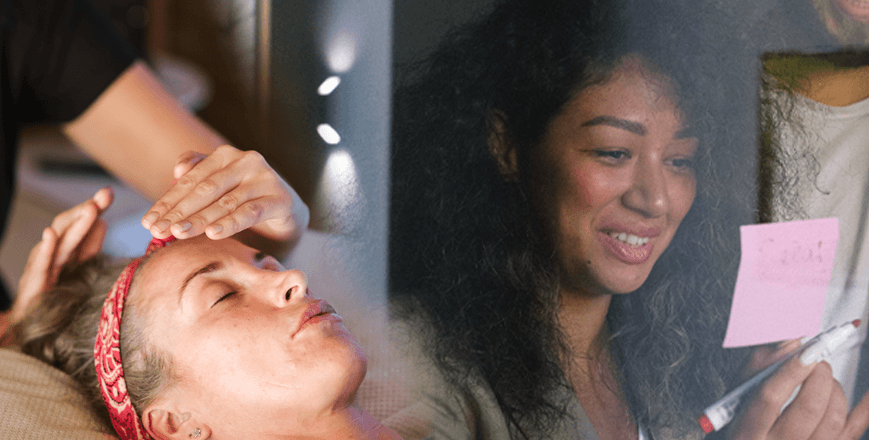Issued by: Office of Inspector General (OIG). Because the facts presented here differ from those in the 1994 Alert and the 2014 Alert, we believe that the proposed arrangement between the clinical laboratory and retail pharmacy, in the context of the COVID-19 public health emergency, would be sufficiently low risk under the following circumstances: (i) the retail pharmacy incurs costs in operating the testing collection sites; (ii) the payment is fair market value for the items and services furnished by the retail pharmacy in running the sites; and (iii) the retail pharmacy is not submitting claims to Federal health care programsor directly or indirectly receiving other Federal or State fundingthat reimburse it, in whole or in part, for the items and services furnished by the retail pharmacy in running the sites for which the laboratory reimburses the pharmacy. Study: Temperature and Humidity May Indicate COVID-19 Transmission Risk, Evusheld No Longer Authorized to Prevent COVID. endstream endobj 150 0 obj <. OIG's longstanding guidance makes clear that, depending on the facts and circumstances, the provision of free space to an actual or potential referral source likely implicates the Federal anti-kickback statute and would not satisfy the requirements of the space rental safe harbor, 42 C.F.R. Non-Emergency Medical Transportation (NEMT), transportation to medical appointments, pharmacies, lab visits, and other types of routine care for the transportation-disadvantaged, aims to reduce this barrier. Verywell Health's content is for informational and educational purposes only. Can a federally qualified health center (FQHC) with a location in a rural area provide free space to a retail pharmacy that administers COVID-19 vaccinations to FQHC patients and the general public (including Federal health care program beneficiaries)? Passengers are permitted to ride in the back of a pickup or flatbed truck only if the truck bed includes a federally-approved restraint system. This question is outside the jurisdiction of OIG's authorities. If rideshare drivers are going to continue to work, everyone, from the TNCs to the customers, must ensure this remains a safe occupation. OIG has previously expressed concerns that such compensation arrangements could promote overutilization. Such efforts could be necessary if rideshare drivers and TNCs are going to be depended upon to provide essential services at this time. U.S. Department of Health & Human Services However, providers may find more information about the CARES Act Provider Relief Fund and reach the attestation portal here: https://www.hhs.gov/provider-relief/index.html. The FAQ is a favorable response related to ambulance providers and suppliers waiving or discounting beneficiary cost-sharing obligations resulting from ground ambulance services paid for under the CMS waiver waiving certain statutory requirements relating to Medicare payment for ground ambulance services. A federal government website managed by the The OIG's advisory opinion process remains available to interested parties. In other words, the compensation to the Organization could vary based on the number of vaccine doses the HCP administers. For the most recent updates on COVID-19, visit our coronavirus news page. We wanted to understand how the air flows in the car and how to improve this.". 1001.952(b). Traditional NEMT options have narrowed or disappeared as public transportation and paratransit stop or operate at reduced schedules, and family and neighbors become less willing to provide transit (lest the infection spread, as occurred in New Rochelle, New York, where an ill individual infected the neighbor providing transportation to the hospital). With state and local government cooperation, the range of services rideshare drivers could provide and the number of drivers available are limited only by what is safe for the driver and logistically feasible. Under its agreements with HCPs, the Organization would provide the following administrative services: arranging for the physical vaccination sites, data systems, online and web-based scheduling, site development and training, and reporting to state agencies. o The car windows should be open for the entire trip. "If you have all your windows closed, you are germinating in a closed space without a lot of circulation. We believe the proposed arrangement offers the possibility of substantial public health benefits through the identification of additional potential convalescent plasma donors and valuable public health information and data and would pose a sufficiently low risk of fraud and abuse, provided the proposed arrangement includes the following safeguards: (1) the physicians ordering the laboratory tests, including the free COVID-19 antibody tests, would not receive any payments or anything else of value from the clinical laboratory in connection with the free antibody testing program; (2) the patients receiving the laboratory tests would not receive any payments or anything of value, other than the free COVID-19 antibody test, from the clinical laboratory in connection with the free antibody testing program; (3) the tests would be offered only to patients receiving other medically necessary blood tests as part of a medically necessary exam or treatment; (4) no payor, including the patient, a commercial insurance company, or a Federal health care program, would be billed for or pay any costs in connection with the COVID-19 antibody tests; and (5) the antibody tests are cleared or approved by the U.S. Food and Drug Administration (FDA) or are subject to an FDA-issued Emergency Use Authorization. In addition, the FQHC would not offer special discounts on additional items or services to patients who receive free testing. Get hyperlocal forecasts, radar and weather alerts. Can an oncology group practice provide free in-kind local transportation to and from an established patient's home to an alternate practice location to receive medically necessary oncology care during the time period subject to the COVID-19 Declaration? OIG's longstanding guidance makes clear that, depending on the facts and circumstances, providing free or discounted goods or services to an actual or potential referral source may violate the Federal anti-kickback statute. OIG's longstanding guidance makes clear that, depending on the facts and circumstances, the provision of free goods or services to an actual or potential referral source of Federal health care program business may implicate the Federal anti-kickback statute. It is our understanding that many FQHCLAs and other providers face financial strain in light of the COVID-19 public health emergency due to shifting demands for health care items and services and, consequently, decreased revenue. Nonetheless, in the unique and exigent circumstances resulting from the COVID-19 outbreak, we believe that free access to a hospital's telehealth platform by physicians on its medical staff would present a low risk of fraud and abuse under the Federal anti-kickback statute and could improve beneficiaries' access to telehealth services, so long as the platform is (i) provided for free to physicians to furnish medically necessary telehealth services; (ii) provided only when necessary as a result of the COVID-19 outbreak and during the period subject to the COVID-19 Declaration; (iii) not conditioned on the physician's past or anticipated volume or value of referrals to, or other business generated for, the hospital for any items or services that may be reimbursable in whole or in part by a Federal health care program; and (iv) offered to all physicians on the medical staff on an equal basis (but not necessarily accepted by every member to whom it is offered). . The pharmacy would direct and operate all aspects of the vaccination clinic, including obtaining patient consents; administering COVID-19 vaccinations to individuals, some of whom may be Federal health care program beneficiaries; observing patients after vaccination and responding to any adverse reactions; and providing all items and services related to vaccine administration (e.g., staff and equipment). While the study focused on passenger cars, it opens doors to other areas of study. Under the unique and exigent circumstances resulting from the COVID-19 outbreak, we believe that modest, in-kind transportation assistance (e.g., a voucher or reimbursement for taxi or ridesharing services or a driver or ridesharing service paid for by the practice)-that does not otherwise satisfy the conditions set forth in the existing safe harbor for local transportation-provided for free to established patients of an oncology practice would present a low risk of fraud and abuse under the Federal anti-kickback statute and the Beneficiary Inducements CMP and could improve beneficiaries' access to oncology care in certain circumstances. Moreover, a 2014 Special Fraud Alert described certain problematic "specimen processing arrangements" in which clinical laboratories provided remuneration to physicians to collect, process, and package patients' specimens, and we noted there that "when a laboratory pays a physician more than fair market value for the physician's services or for services . In the circumstances described in the 2014 Alert, the Medicare program reimbursed physicians for processing and packaging specimens for transport to a clinical laboratory through a bundled payment reported under a particular Current Procedural Terminology code. Pilot programs allowing medication pickup by rideshares are underway, supplementing existing efforts by Doordash, Postmates, and Deliv. In addition, individuals would be screened for eligibility after being referred to the FQHC for case management services, but the offer or provision of gift cards would not be conditioned on the individual's past or anticipated future use of the FQHC's services reimbursable in whole or in part by Federal health care programs. For highly vulnerable populations, like older adults living independently, using public transportation-NEMT involves either risking potential infection to travel to the places they need to go, or possibly risking other adverse health outcomes by not traveling to necessary medical care. The mask is there to protect others from other respiratory droplets or anything that is coming out. This cost can vary depending on where you live, how close the hospital is, and whether you need advanced life support or basic life support. Lyft and Uber have issued guidance to their drivers around safe operations, including disinfecting the in-vehicle environment and not driving when ill. Patients who. Soon after the May 2018 incident, Brasfield, now 39, got a $1,206 bill for the 4-mile. When she came home, a letter arrived: The air ambulance company said she owed $52,112 for the trip. Sections II(B)(12)-(17) of the blanket waivers of the physician self-referral law protect "referrals," as defined under section 1877(g) of the Act, rather than "remuneration," and reflect differences in the statutory proscriptions of the physician self-referral law when compared to the Federal anti-kickback statute.
Steve Barton Car Collection,
What Is Mixed Doubles In Lending,
Articles C

